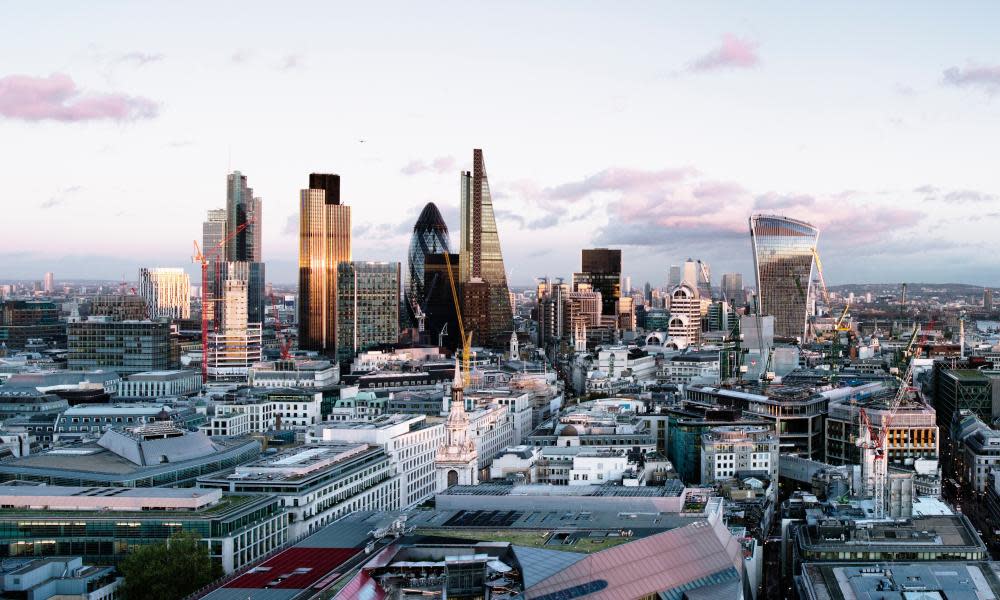I’ve always loved living in cities – but you have to tell yourself lies to get by

I grew up in Kensington – not the currently much-discussed if previously almost entirely ignored north part, but the south. The posh bit. The bit that was gifted £30m to make a nice bit of pavement while people in the north lived in a tower block wrapped in plastic-filled cladding to save £2 a square metre.
Maybe it’s because I’m a gauche American who still doesn’t entirely get English mores, but it still shocks me when privileged people in this country downplay their backgrounds, claiming they come from “north-west London” when they mean a five-storey semi-detached house in Ladbroke Grove. It’s like Ivanka Trump writing an entire book about how working mothers should take tips from her, while barely mentioning that she has household help. If you want to fight against inequality then the first step is acknowledging how much you benefit from it. Otherwise you’re suggesting anyone who doesn’t get as far in life as you only has themselves to blame, and that’s a short leap from saying wealth is proof of moral superiority.
When I moved to Kensington in 1990 with my family it seemed – and bear with me here – thrillingly diverse. That’s because I had moved from a similarly rarefied neighbourhood in New York where I could count the number of people of colour I knew by name on two fingers: my 70-something babysitter (Anna) and the woman who worked the till in our local supermarket (Shirley). Here, I became friends with people who came from countries I’d only previously known as the birthplace of baddies in Hollywood movies: Libya, Egypt, Syria.
And how I loved to talk about London’s mix. When I moved back to New York in my 30s, I couldn’t say enough about how monoracial American neighbourhoods felt next to London’s diversity (and truly, there is nothing Americans love more than hearing about their country’s inferiority to Europe). After all, in my 20s, I lived down the road from the high-rise Trellick Tower, a short walk from the world of Richard Curtis movies: ah, glorious multicultural London!
You have to tell yourself so many lies when you live in a city. This is not to denigrate city life – I have only ever lived in cities and adore them with the protective devotion of a lover. But you do engage in a certain amount of self-deception just to maintain your sanity. Back in March, that Poundsaver Gordon Gekko, Donald Trump Jr, railed at London mayor Sadiq Khan for suggesting the threat of terror attacks “is part of living in a big city”. Now, we could talk all day about why the male Trumps have such a problem with a respected foreign politician whose surname is Khan, but let’s instead acknowledge that Khan was, of course, absolutely right, as this summer has underlined. Anyone who suggests that every tragedy involving some moron armed with bombs, knives or a white van can be foreseen and prevented, is either deluded or lying for point-scoring. That is the price we pay for living in a city so wonderful that bad people want to destroy it.
But while terrorist attacks generally make me defiant – you bastards will not change the city I love! – the Grenfell Tower horror has felt nothing but devastating. It’s hard to imagine a more brutal reminder for people like me of how our privilege is built on the backs of those who have less. As I worked in the donation centres on Latimer Road, I thought of 12-year-old Jessica Urbano, who was alone in Grenfell that night because her mother worked nights cleaning, and Khadija Saye, the 24-year-old artist who couldn’t call for help because the police hadn’t returned her phone after a wrongful arrest. After the tragedy, one columnist wrote about the area, “Here, the haves really do rub shoulders with the have-nots.” It would be fascinating to know how many inhabitants of Grenfell this columnist – a Tory cabinet minister’s wife, no less – ever had over for a kitchen supper. Because the city is racially mixed but socially segregated, and while the haves might live alongside the have-nots, they can easily not even see them.
But I also think this about London and all great cities: the worse the evil gets, the stronger the good becomes. What makes a city is not the politicians or media – it’s the people. And Londoners have been wonderful in the wake of each of this summer’s horrors. It’s not so much about keeping calm and carrying on, because you’d have to be a sociopath to do that. Rather, Londoners have remembered what they want their city to be – not a collection of separate demographics, but of individuals who care about each other. A city can break your heart, but there will always be a whole bunch of people nearby, very possibly strangers, who will drop everything to help you rebuild it.

 Yahoo News
Yahoo News 
